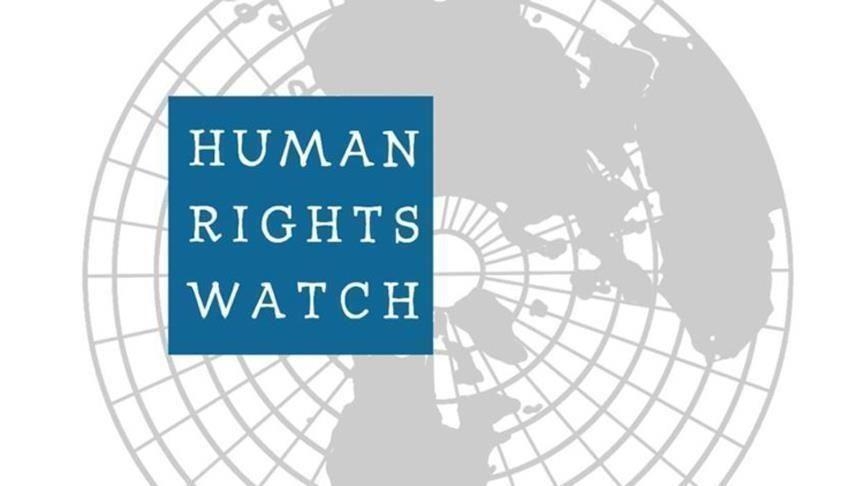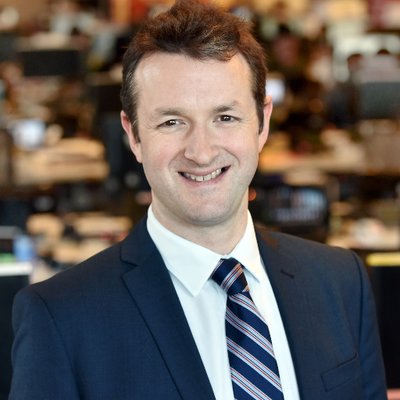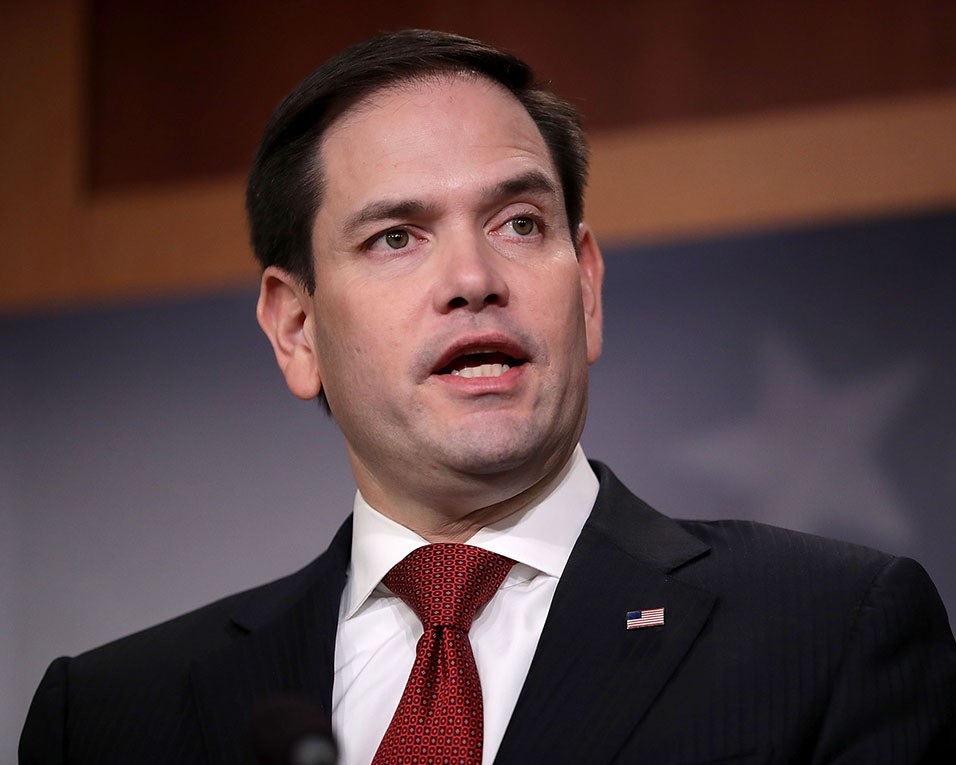Opinion
Of Human Rights Watch's systematic bias against Rwanda

A
keen observer who follows reports about Rwanda published by the New York based
Human Rights Watch (HRW), since July 1994, will feel uneasy due to its overt
activism against the Rwandan government and the Rwandan Patriotic Front (RPF).
Retired
American diplomat turned academic, Richard Johnson, in an analysis of HRW’s
bias against Rwanda, “The Travesty of Human Rights on Rwanda,” published on
March 19, 2013, shed some light. “What Human Rights Watch (HRW) does on Rwanda
is not human rights advocacy. It is political advocacy which has become
profoundly unscrupulous in both its means and its ends,” he argued.
Johnson
called on HRW’s Board of Directors to hold Executive Director Kenneth Roth, and
the HRW personnel who cover Rwandan issues, accountable for this travesty
“which has dangerous implications for Western policy toward Rwanda and for the
overall credibility of Western human rights advocacy.”
He
urged HRW’s funders to think seriously about what causes their money might
serve, and urged Western governments to be careful about following HRW advice,
and courageous enough to challenge them, publicly if need be.
“HRW’s
discourse on Rwanda over the past twenty years has been viscerally hostile to
the Rwandan Patriotic Front (RPF), which defeated the genocidal Hutu Power
regime in 1994, and systematically biased in favour of letting unrepentant Hutu
Power political forces back into Rwandan political life.”
The
executive summary of HRW’s 2020-2021 annual report proves Johnston’s
observations correct. It singles out the RPF, with allegations that seem
imagined. “It [RPF] continues to target those perceived as a threat to the
government” claims the report, without a shred of evidence for its allegations.
It
alleges that “arbitrary detention, ill-treatment, and torture in official and
unofficial detention facilities are commonplace, and fair trial standards are
routinely flouted in many sensitive political cases, in which security charges
are often used to prosecute prominent government critics. Arbitrary detention
and detention of street children, sex workers and petty vendors occurs widely.”
It
cites former gospel singer Kizito Mihigo, among those it claims were targeted.
Mihigo who was arrested in February 2020 for contravening the terms of his
conditional early release from prison following a Presidential pardon died in
police station. An autopsy confirmed that he committed suicide. Kizito’ death was, sadly, only one of many deaths
by suicide that are all too common in prisons around the world. HRW does not
call for international investigations in any of these. So why single out
Rwanda?
In
the US, in the 12 months of 2020, there were 318 deaths in prison (a rate of
4.0 per 1,000 prisoners) but HRW is not concerned by what is happening in its
own backyard. In the UK, these figures are even more alarming. According to
data published by the government on April 29, 2021, “In the 12 months to March
2021, there were 408 deaths in prison custody, an increase of 42% from 287
deaths the previous 12 months. Of these, 79 deaths were self-inflicted.
No
alarm was raised by HRW, which instead singles out Rwanda, over a single
case. HRW’s animosity against Rwanda is
also reflected through two reports published in the last week of September -
“Rwanda: Paul Rusesabagina Convicted in Flawed Trial,” and, “Rwanda: Ups-Linked to Commonwealth Meeting.”
In
the report about Rusesabagina, HRW turns a blind eye to his leadership, and
financing of terrorist organisations - Rwandan Movement for Democratic Change –
Front for National Liberation (MRCD-FLN).
The
latter carried out multiple attacks in south-western Rwanda, which claimed the
lives of nine people, destroyed livelihoods and destroyed property. The same
report makes several outrageously false accusations including that the arrest
of Rusesabagina “started as enforced disappearance.”
Luring
Rusesabagina to Rwanda is no different from what the Belgians did to capture
Somali pirate Mohamed Abdi Hassan, accused of “hijack, taking hostages and
belonging to a criminal organisation.” HRW
made no objection to this, and other similar cases.
The
charge that Rusesabagina could not get a legal counsel of his own choosing is a
red herring debunked several times. Rusesabagina was represented by his Rwandan
lawyers. His international team failed to fulfil the requirements of the
Rwandan Bar Association.
In
its most recent report titled “Rwanda: Round Ups -Linked to Commonwealth
Meeting,” HRW claims that “Rwandan authorities rounded up, and arbitrarily
detained over a dozen gay and transgender people, sex workers, street children,
and others, in the months before a planned June 2021 high-profile international
conference.”
The
report alleges that security services singled out gay or transgender people.
According to government spokesperson, Yolande Makolo, the report was made
up. “HRW’s report on Rwanda is a calculated
attempt to harm a strategic sector of our economy with fabricated allegations.
The allegations are not true. Rwanda does not discriminate, in law, policy of
practice, against sexual or gender orientation,” Makolo tweeted.
Those
HRW calls “poorest and most marginalized residents” are mostly young, petty
criminals, often abusing drugs. They are often taken to Gikondo rehabilitation
centre, for assessment and help. Most are then transferred to Iwawa
Rehabilitation and Vocational Skills Development Centre located on Iwawa
Island, in Lake Kivu, where their rehabilitation continues. There, they are
weaned off their addictions, and are given a trade. Most are later reintegrated
back into society. The programme boasts a great success rate. But HRW calls for the scrapping of this and
similar programmes. Johnson observes
that this rights watchdog always sides with genocidaires and does everything to
thwart justice.
“HRW’s
advocacy efforts concerning the international community’s treatment of Rwandan genocide
suspects outside Rwanda has been consistent with HRW’s radically negative view
of Rwandan governance and justice...HRW has been very active, via its 2008 “Law
and Reality” report and amicus curiae briefs to the ICTR and a UK court, in
supporting the efforts of Rwandan genocide suspects to avoid transfer or
extradition to Rwanda by the ICTR or by national courts, on the grounds that
they would not get a fair trial there.”
These
efforts were initially successful. In late 2008, the ICTR rejected the Prosecutor’s
first request for the transfer to Rwanda of several suspects indicted by the UN
Court. Thanks in part to HRW’s urging, in early 2009, a higher court in the UK,
overturned a lower court’s approval of a Rwandan request for extradition of
genocide suspects, implicated in the murder of thousands in the districts they
governed. These suspects continue to live freely in the UK. For more than two
decades, the UK is protecting five Rwandans suspected of genocide and other
crimes against humanity.
In
a licence that is rightly never applied to Holocaust denial, in the name of
free speech, HRW defends genocide denial, by among others, Vloggers, Aimable
Karasira and Yvonne Idamange, arrested for denying and minimising the 1994
genocide against the Tutsi. Idamage was
sentenced to 15 years in prison, for serious crimes of trivialising the
genocide against the Tutsi and inciting public revolt. Karasira’s trial is
still on-going.
Western
rights organisations, may project themselves as defenders of human rights, but
they harbour a hidden agenda, something sinister. The likes of HRW are mainly
used to protect, project and promote the interests, including multinational
businesses scattered globally, of the Global north.



